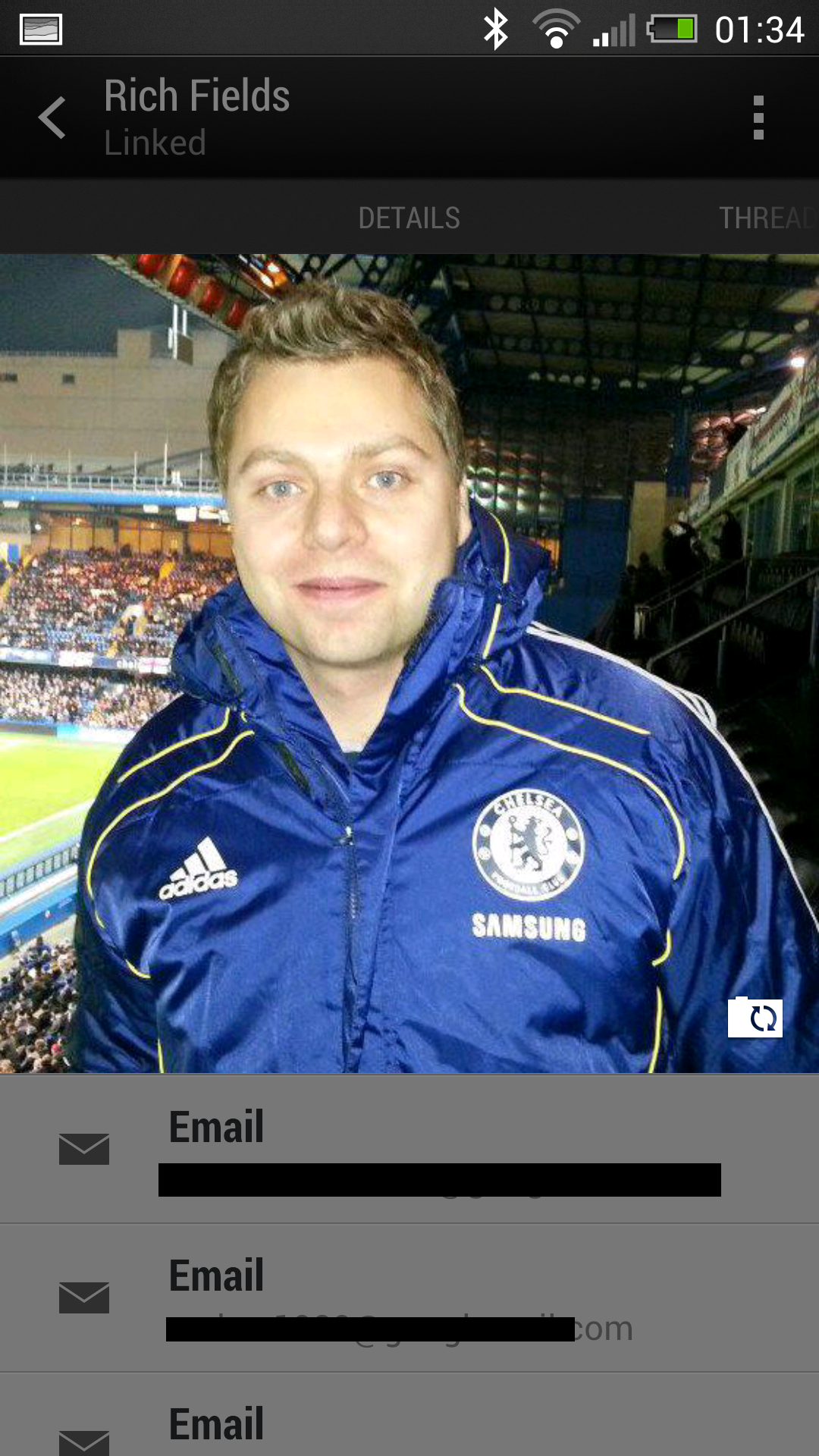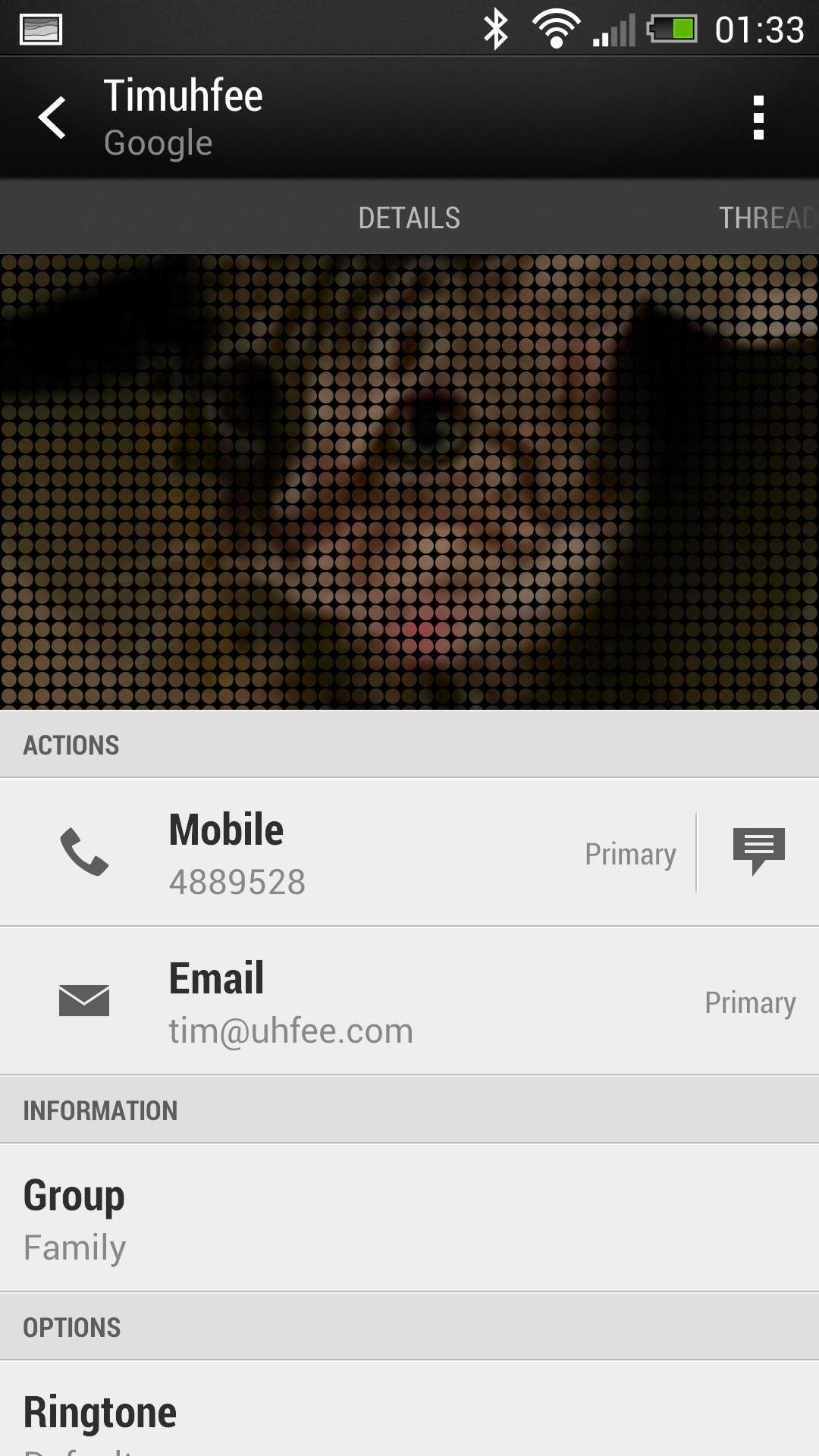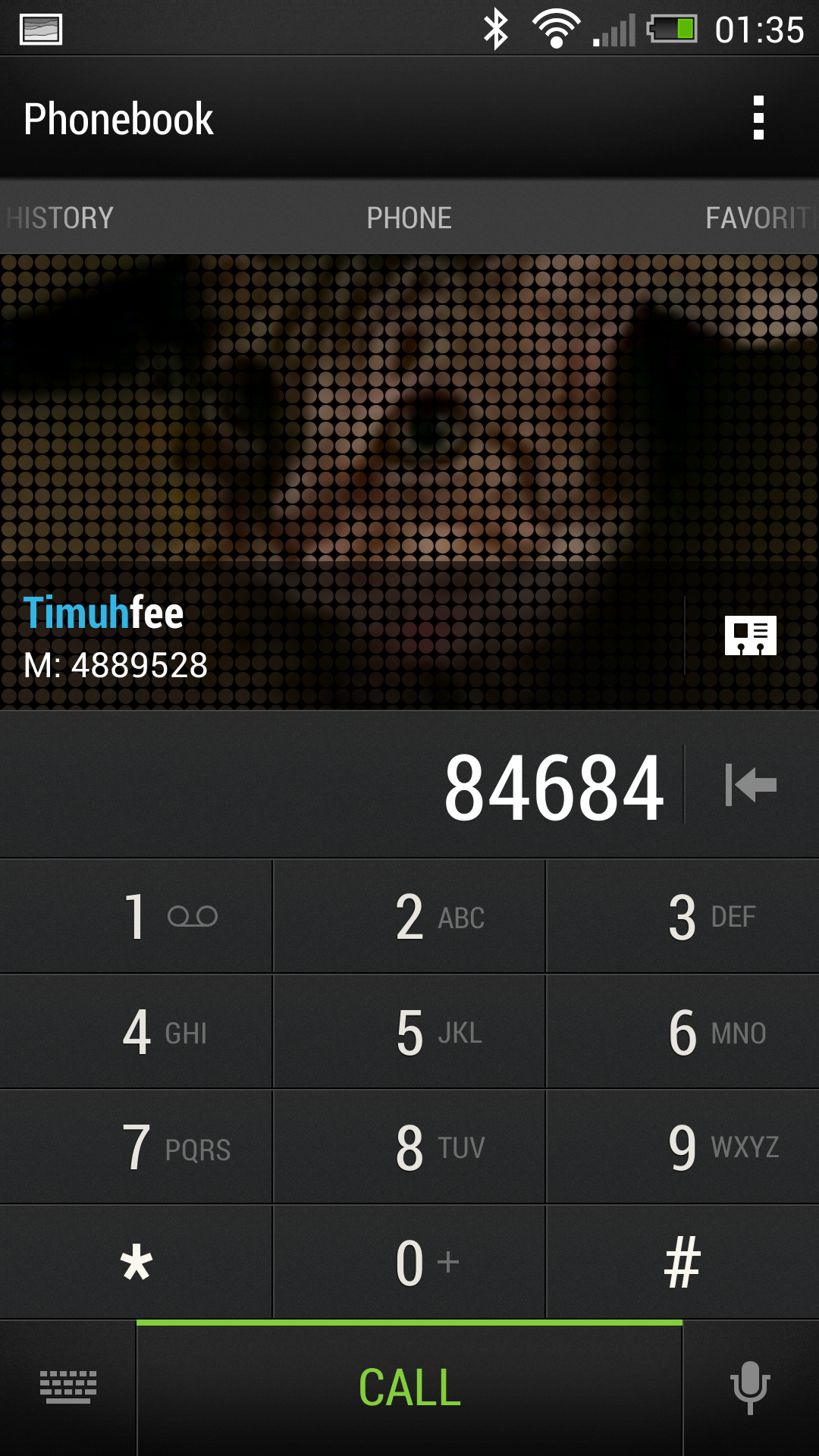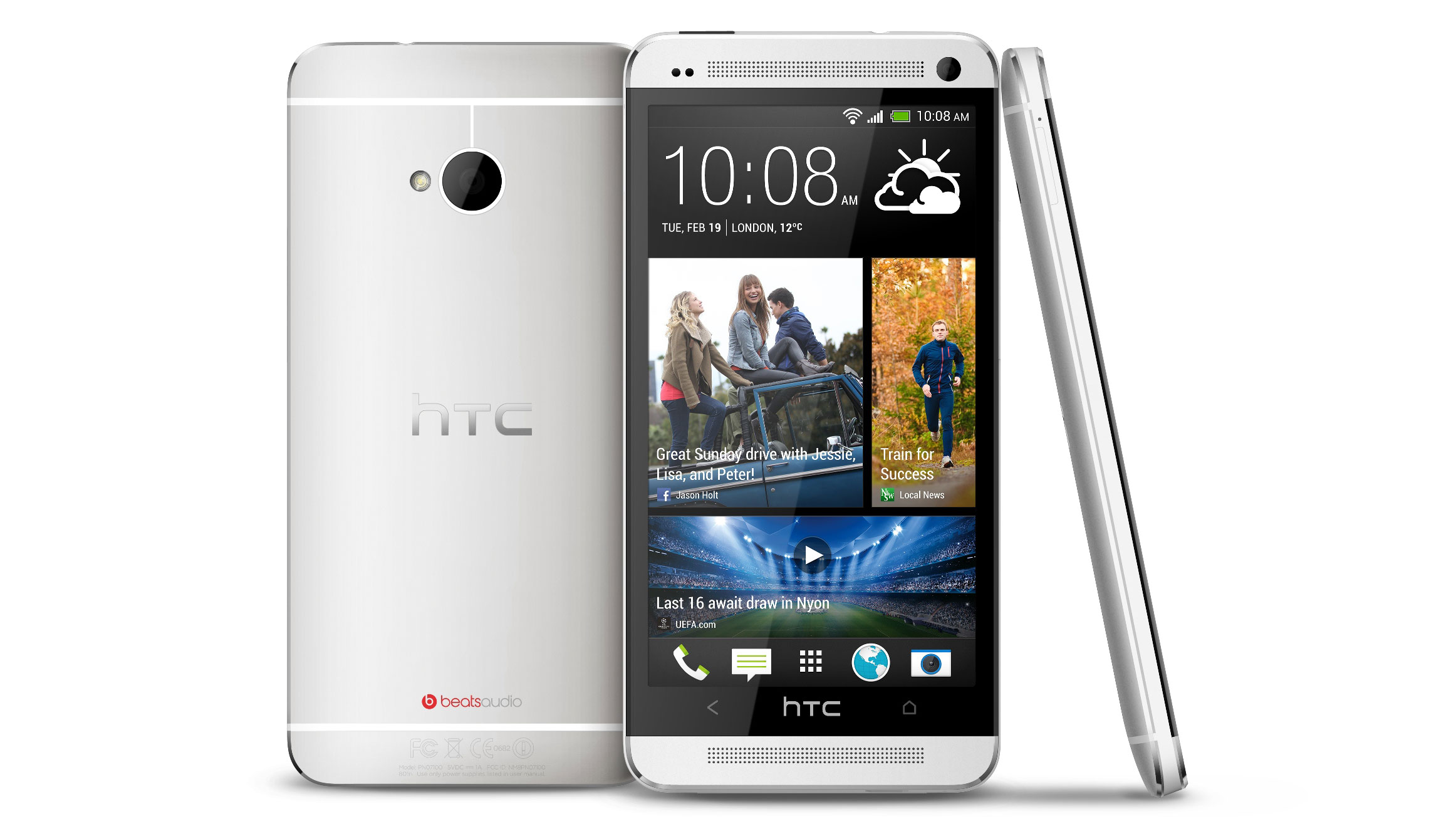Why you can trust TechRadar
When it comes to the contacts system on any HTC phone, we've been impressed for years, and the HTC One continues in that tradition. Whether it's simply knowing which contacts you want to join with which social network profiles, or just making sure that new and relevant information falls into the contact card, the HTC One manages it all with aplomb.
One of the big changes some users will note is that, unlike the Samsung Galaxy S3 or Nexus 4, the HTC One can pull in high resolution pictures from Facebook, which is a big plus.

While the others can do so from Google+, they eschew the same thing when it comes to other social networks, which is really annoying when you want the more popular profile pic of your friend to pop up when they call, but don't want it to be hideously blurry.
And to offset the times when there is no high resolution picture available, HTC has come up with a fun dotted picture that brings a stylized view to the picture, rather than just showing you a bunch of mashed together pixels. It's a nice touch that adds to the premium feel - and we like the fact HTC calls them "big pictures" in the settings menu, where you can select whether these are downloaded over Wi-Fi or mobile data too.
If you want to change the pic it's using, a simple tap on it in the contact menu will yield a little folder icon in the corner which will allow you to shoot a new one using the camera, head to the gallery to choose another or go from another social network if you're a fan of the blurry.
The contacts system is pretty much as simple as you want it to be, which is a big plus in our eyes. The tab on the right-hand side of the screen is easy to grab so you can scroll up and down the list to find the letter group you're after, and then all the names and pictures are laid out with the new, clean interface on offer from Sense 5.
Diving into the contact itself, it's just as easy to get the information you want, be it a history of all the ways you've interacted with the person over email, calling or texting, and details on their birthday if the information is there on Facebook too.
On top of that you can view their social networking updates in the same neat BlinkFeed interface HTC has developed, which means some natty pictures at times to punctuate the sea of white words on gray background. HTC is one of the few brands to still integrate picture albums drawn from Facebook into the contact profile as well, and while it might be a slightly unused feature, it's still a great tool to have.

The contacts system is simple enough to use, but if you've got multiple accounts on the go then you'll find it a little tricky to filter them all out at times - if you're not careful you'll end up with lists including Twitter, Google+, Facebook and more in your normally neat phonebook, so make sure you tag "only those with phone numbers" in the settings menu.
Smart dialling, such a key function of any phone, in our opinion, is here on the HTC One, making it so much easier to quickly call up the profile and number of the person you want to get hold of simply by typing in the letters that correspond to their name using the T9 predictive text input method.
Each option comes up quickly, although we would like to see the One being a little more intuitive when it comes to deciding which person to show when there are multiple options for the same combination of numbers - if someone is in our "favorites" list then it should be top here.
But we still love the contacts section of HTC phones, and the HTC One is an excellent way of organizing your life that doesn't make it all a large hassle. Well done.
Calling

The calling on the HTC One is superb - we'll get that out the way early on. From the clever noise reduction to the fact you can boost the earpiece volume way over the necessary level you'd need it in most situations, we never struggled to talk to our friends on the go.
The built in amp helps with this, but more important is the fact the HTC One has incredible connection quality given its encased in an aluminium body.
We often found we had a bar or two more of signal than other phones, and this translated to actual connection as well, with data popping down with no issues.
There's very little you can do when it comes to in call options, such as not being able to control noise reduction on the fly, but the things you need are there, such as activating the speaker and switching between a Bluetooth headset if you so wish.
It's nice, it's functional, and we didn't drop a single call during our tests. That's a win right there for a device that is still a phone at its heart, after all.

Gareth has been part of the consumer technology world in a career spanning three decades. He started life as a staff writer on the fledgling TechRadar, and has grew with the site (primarily as phones, tablets and wearables editor) until becoming Global Editor in Chief in 2018. Gareth has written over 4,000 articles for TechRadar, has contributed expert insight to a number of other publications, chaired panels on zeitgeist technologies, presented at the Gadget Show Live as well as representing the brand on TV and radio for multiple channels including Sky, BBC, ITV and Al-Jazeera. Passionate about fitness, he can bore anyone rigid about stress management, sleep tracking, heart rate variance as well as bemoaning something about the latest iPhone, Galaxy or OLED TV.
